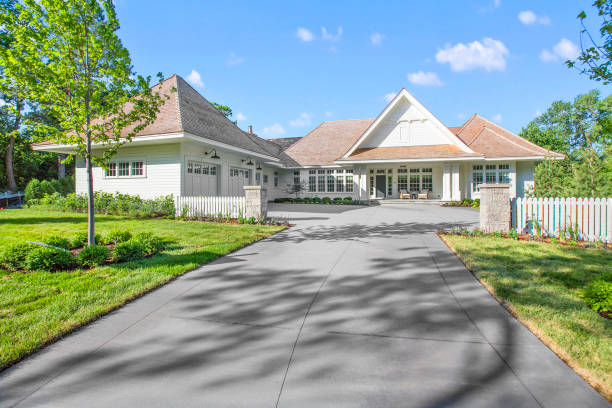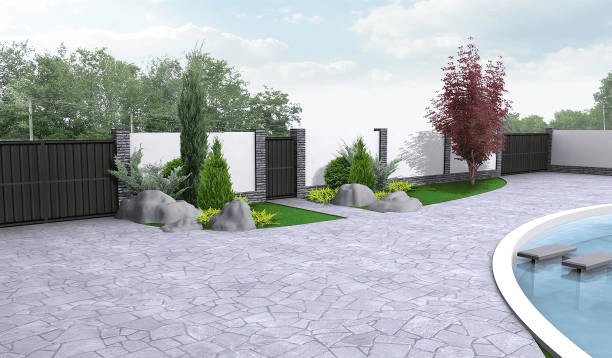When planning the design and construction of your home’s exterior features, choosing the right materials can make a significant difference. Driveways and exterior accents must not only complement your home aesthetically but also stand up to weather, wear, and time. If you’re aiming for a sleek modern look or a timeless classic appeal, selecting materials that are both durable and attractive is essential.
Below, we explore some of the best options for driveway and exterior features that offer long-lasting resilience and curb appeal.
Concrete: Versatile and Long-Lasting
Concrete is one of the most widely used materials for driveways, and for good reason. With the right concrete cleaner, you can maintain its pristine look for years. Known for its durability, concrete can withstand heavy traffic and harsh weather conditions, making it an ideal choice for homeowners looking for a practical yet visually appealing solution.
Concrete can be poured in various shapes and patterns, and decorative options like stamped or colored concrete allow homeowners to replicate the look of stone or brick at a fraction of the cost. When properly installed and maintained, concrete driveways can last up to 30 years or more. Additionally, they require minimal upkeep, with occasional resealing helping to keep the surface looking fresh and preventing cracks from spreading.
Brick Pavers: Timeless Elegance

For those seeking a classic look, brick pavers are an excellent choice. The rich colors and traditional appearance of brick can elevate the exterior of any home, adding a touch of sophistication. Brick offers a timeless charm that works well for colonial, cottage, and classic-style homes. It is strong enough to handle significant weight and wear without cracking, and if a paver does get damaged, it can be easily replaced without disturbing the surrounding material. Brick pavers are also eco-friendly, as they are often made from natural, recyclable materials.
Natural Stone: Premium Beauty and Strength
If you want to make a statement with your driveway or other exterior features, natural stone is a go-to choice. Options such as granite, slate, and flagstone provide unmatched beauty and can significantly boost the curb appeal of your property. Natural stone ensures a unique look since no two stones are exactly alike. It is exceptionally durable and can withstand extreme weather conditions while maintaining its integrity for decades.
Stone can be used for driveways, pathways, patios, and decorative retaining walls, making it a versatile material. However, while natural stone is one of the most attractive options, it is also one of the most expensive and may require professional installation to ensure it stays level and secure.
Gravel: Affordable and Rustic
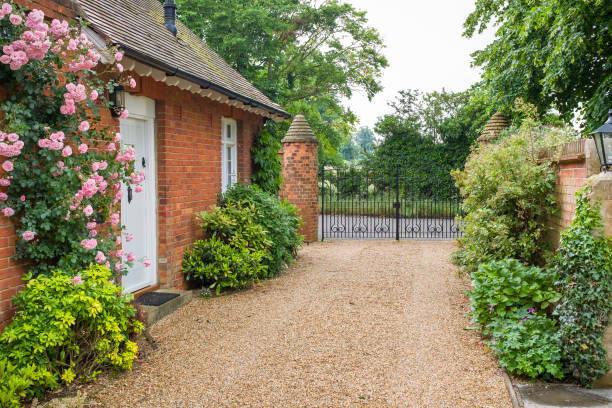
Gravel driveways offer a more rustic and budget-friendly option for homeowners. A gravel driveway provides a natural, adaptable surface that is perfect for country or rural settings. Composed of loose stones, gravel has a natural look that blends well with rural and country-style homes.
One of the main advantages of gravel is its affordability, making it one of the most cost-effective driveway materials available. Its permeable nature allows for excellent water drainage, reducing the risk of flooding and pooling.
Gravel is also relatively easy to install, and with the right preparation, homeowners can lay it without professional help. However, gravel driveways do require more maintenance than paved options, as they need to be periodically leveled and replenished to fill in gaps created by usage and weather.
Asphalt: Smooth and Reliable
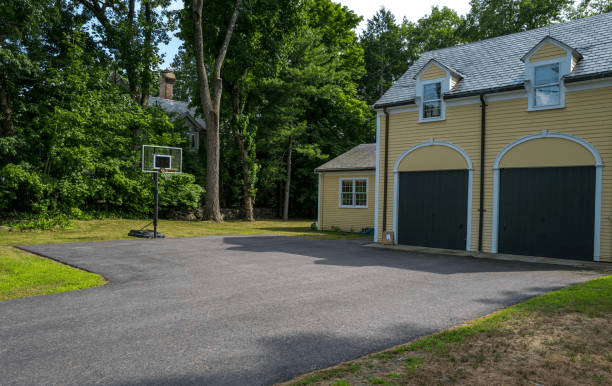
Asphalt is another popular choice for driveways due to its durability and relatively low cost compared to concrete. Additionally, homeowners who live in colder climates may want to consider the cost of a heated driveway, which can be an added luxury that prevents snow and ice buildup and enhances safety. Its smooth, black finish provides a sleek look that complements both modern and traditional homes.
Asphalt is cost-effective, generally less expensive than concrete, making it an attractive option for homeowners on a budget. It can often be installed in a single day and is ready for use soon after. When properly maintained, an asphalt driveway can last 15-20 years. However, it does require sealing every few years to extend its lifespan and maintain its appearance.
Permeable Pavers: Eco-Friendly and Functional
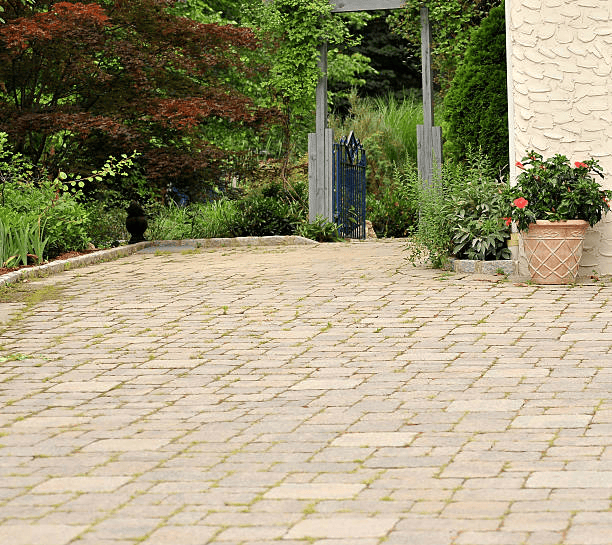
For those looking to incorporate sustainable practices into their home’s design, permeable pavers are an excellent choice. These pavers allow water to pass through, reducing runoff and promoting groundwater recharge. Permeable pavers are environmentally conscious, helping to prevent water pooling and reducing the strain on stormwater systems. Available in various designs and colors, they can match the aesthetic of any home while being built to last and handling the weight of vehicles, making them ideal for driveways.
Choosing the Right Material for Your Home
Selecting the right material for your driveway and exterior features involves balancing budget, aesthetics, and functionality. Homeowners should consider factors such as climate, traffic levels, and maintenance capabilities when making their decision. For a budget-friendly solution with a charming, rustic appeal, gravel may be your best bet. If you’re looking for long-term durability and low maintenance, concrete or asphalt are solid choices. For those seeking luxury and uniqueness, natural stone and brick pavers offer high-end beauty. Finally, permeable pavers provide a sustainable option without compromising on style or function.
Investing in quality materials will enhance your home’s curb appeal and ensure that your exterior features remain attractive and functional for years to come. By carefully evaluating your options, you can create a welcoming and enduring exterior space that adds value to your property and enjoyment to your daily life. Follow these tips and check out Wild Horse Estates to help you further.
Author Bio:
Sam Willis is a freelance writer who loves sharing his knowledge and expertise in residential and commercial real estate, as well as engineering, construction, and business. He lives in Atlanta, Georgia where he enjoys spending time with his wife and researching real estate trends in his free time. Sam’s work as a freelance writer can be found on Building Product Advisor, a construction industry resource site.


 Tiếng Việt
Tiếng Việt